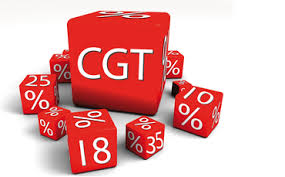The Kenya Association of Stockbrokers and Investment Bankers (Kasib) and KRA told the High Court that they had engaged in fruitful talks since the stockbrokers moved to court, and that a deal could be in the pipeline.
This came as High Court judge Justice Isaac Lenaola on Tuesday directed that the Kenya Association of Stockbrokers and Investment Bankers (Kasib) negotiate with the Kenya Revenue Authority and return before him on February 3 to either record a consent or commence preparations for trial.
If the stockbrokers and KRA agree to implement, Nairobi Securities Exchange (NSE) investors will henceforth pay a five per cent tax on gains made from any share sales at the stock market.
The levy also applies to sale of other property such as land, treasuries and private equity. The tax was suspended in 1985 in a bid to attract more investors to the Nairobi bourse and ease land transactions.
The court was expected Tuesday to rule on whether or not to issue any orders regarding implementation of the tax, but Kasib and KRA instead convinced Justice Lenaola to adjourn the matter and give them time to strike a deal.
“Let the parties discuss the matter and take directions or record a consent before Lady Justice Mumbi Ngugi on February 3,” Justice Lenaola said.
The negotiations come just a day after KRA boss John Njiraini announced that the capital gains tax could be deferred so as to iron out the contentious issues that have been at the heart of the stalemate with the stockbrokers. While KRA is considering relaxing the provisions, stockbrokers are seeking a shelving of the amendments compelling them to collect the capital gains tax entirely.
KRA had initially stuck its ground on implementation of the law, but Mr Njiraini’s statement will come as relief for them as it could pave the way for reaching a middle ground on the dispute.
The new laws have caused panic among stockbrokers, who argue that implementation of the tax could drive activity down, as it did in Zimbabwe.
“One emerging securities exchange which imposed a transactional-based capital gains tax is Zimbabwe. After the introduction of this tax, the total market capitalization of the Zimbabwe Securities Exchange has fallen from approximately $15 billion to less than $5 billion,” the stockbrokers warn. Stockbrokers insist that the law is too vague to implement as it is not clear on several issues, including the rate of taxation.
Did you love the story? You can also share YOUR story and get it published on Bizna Click here to get started.





